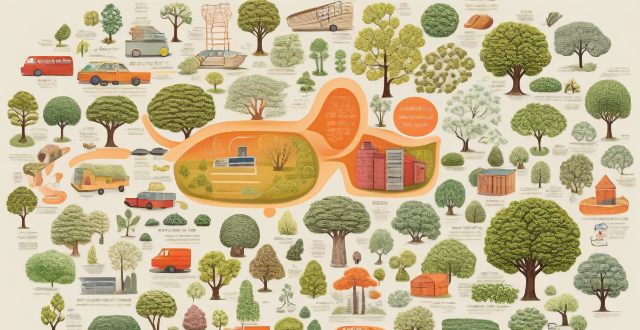The question of whether developed countries should consume more resources than developing ones is complex, involving considerations of equity, environmental stewardship, economic implications, and social-political dynamics. Ethical concerns include fair distribution of resources and meeting basic needs in developing nations, as well as the responsibility to reduce ecological footprints and mitigate global climate change. Practical considerations involve economic growth, infrastructure needs, national sovereignty, and compliance with international agreements. While ethical arguments exist against overconsumption by developed countries, economic realities and political factors complicate the issue. Many developed nations are adopting sustainable practices, and international cooperation is essential for equitable resource management and conservation. Striking a balance between current needs and future preservation is a universal challenge.

Is it Ethical for Developed Countries to Consume More Resources Than Developing Ones?
Introduction
The question of whether it is ethical for developed countries to consume more resources than developing ones is a complex and multifaceted issue. It touches on themes such as global inequality, environmental sustainability, and the responsibilities of wealthier nations. This discussion will explore various aspects of this topic, considering both ethical principles and practical considerations.
Ethical Considerations
Equity and Fairness
- Fair Distribution of Resources: The principle of distributive justice suggests that resources should be allocated in a way that is fair to all members of society. If developed countries consume a disproportionate amount of resources, it could be seen as unfair to those in developing nations who have fewer opportunities to meet their basic needs.
- Meeting Basic Needs: Developing countries often struggle to provide their citizens with access to clean water, adequate food, and healthcare. Excessive consumption by developed nations can exacerbate these issues by depleting global resources that could otherwise help alleviate poverty.
Environmental Stewardship
- Sustainability: Developed countries typically have higher rates of resource consumption and carbon emissions, contributing more to environmental degradation. From an ethical standpoint, it's argued that they have a responsibility to reduce their ecological footprint to protect the planet for future generations.
- Global Climate Change: The overconsumption of resources in developed countries contributes significantly to climate change, which has a disproportionate impact on vulnerable populations in developing regions. This raises questions about the ethics of maintaining lifestyles that harm others through increased natural disasters, sea-level rise, and altered ecosystems.
Practical Considerations
Economic Implications
- Growth and Development: Developed countries often argue that their high level of consumption drives economic growth, which can lead to job creation and innovation. This growth can, in turn, benefit developing countries through trade and investment.
- Infrastructure and Technology: Advanced economies require extensive infrastructure and technology to support their populations and industries. These systems necessitate substantial resource use but also provide services that improve quality of life and can be models for sustainable practices.
Social and Political Dynamics
- National Sovereignty: Each country has the right to determine its own path to development and utilization of resources according to its national interests and policies. Critiquing another nation's resource consumption can be seen as interfering with its sovereign rights.
- International Agreements: Many international agreements exist to regulate resource use and protect the environment. If developed countries are willing to engage constructively within these frameworks, their higher consumption could potentially be justified as part of broader efforts toward sustainability.
Conclusion
In conclusion, while there are compelling ethical arguments against the overconsumption of resources by developed countries, the issue is far from black and white. Economic realities, social progress, and political autonomy complicate any straightforward moral judgment. Encouragingly, many developed nations are now embracing sustainable practices and working towards reducing their ecological footprints. Simultaneously, international cooperation and global governance play crucial roles in ensuring equitable resource distribution and conservation efforts. Ultimately, striking a balance between meeting current needs and preserving resources for future generations remains a critical challenge for all nations alike.